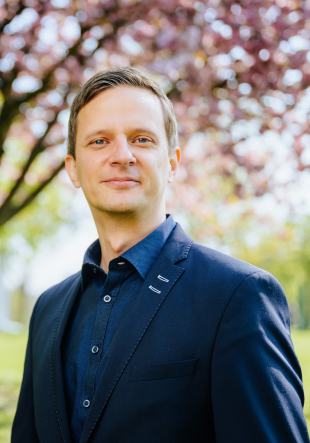From 4 to 6 March, Paderborn University and the German Nutrition Society (DGE) are hosting the 61st Scientific Congress. The theme of this year's congress is "Nutrition and coping with everyday life - an area of tension for individuals, households and society". For the first time, the event will take place at a non-university location in the Kongress Palais in Kassel. Registration is possible online until 1 March. Further information on the congress programme and registration can be found on the DGE event website.
Healthy eating is often perceived as an additional problem in coping with everyday life. Various plenary lectures will address how households deal with this challenge in the context of other everyday issues and what solutions are available at household and societal level. Prof Dr Louise Dye from the University of Sheffield will look at the individual level. Her presentation is dedicated to the question of the extent to which nutrition should not only be seen as a challenge, but also as an opportunity for coping with everyday life. The focus will be on the effects of nutrition on cognition and individual well-being. Kirsten Schlegel-Matthies, Professor at Paderborn University and expert in the fields of consumer and nutrition education as well as household and lifestyle management, will present the household level in her lecture "Sustainable nutritional practices in everyday life - a household science perspective". Prof Jacqueline Broerse, Director of the Athena Institute of Science at the Vrije Universiteit Amsterdam, will address the regional and supra-regional level with her expertise on so-called "living labs". Her presentation will describe the extent to which such living labs can be used to enable sustainable nutrition in the community.
Under the direction of Prof. Dr Anette Buyken and Prof. Dr Lars Libuda from the Institute of Nutrition, Consumption and Health at Paderborn University, the 2 ½-day congress programme is aimed at both young and experienced scientists and offers a platform for exchange and networking. The programme includes 196 lectures and posters, a DGE symposium on food-related dietary recommendations (FBDG) and symposia of the DGE specialist and working groups.
Scientific congresses of the DGE
The DGE congresses have a long tradition as the central scientific event for all those working in the field of nutritional science. The first congress was held in Mainz in 1954. The events initially had a strong continuing education character and took place at irregular intervals. Since 1958, they have had a purely scientific focus and offer young scientists in particular an opportunity to present their research findings to a broad specialist audience in short lectures or poster presentations followed by a discussion. Since 1976, the congresses have been held annually in March at a university or college location with a nutritional science department. Today's congress formats offer a national and international exchange of scientific experience and the opportunity to take a stand on current nutritional issues.
This text has been translated automatically.


